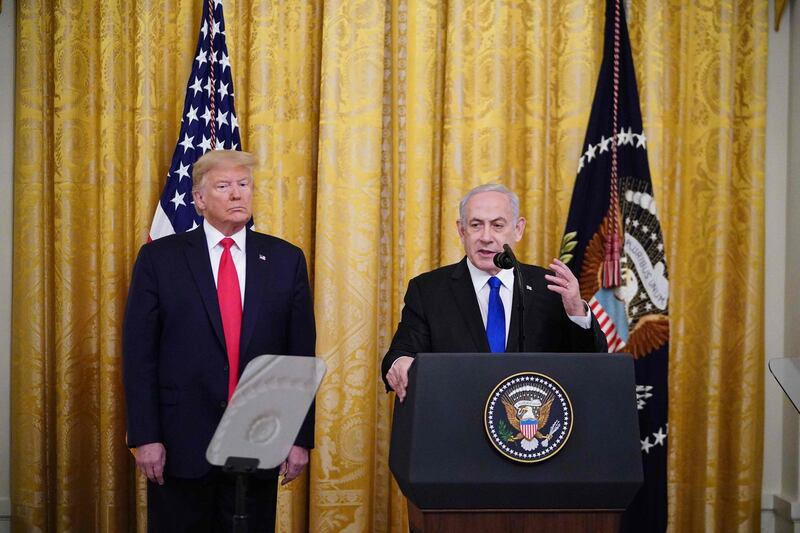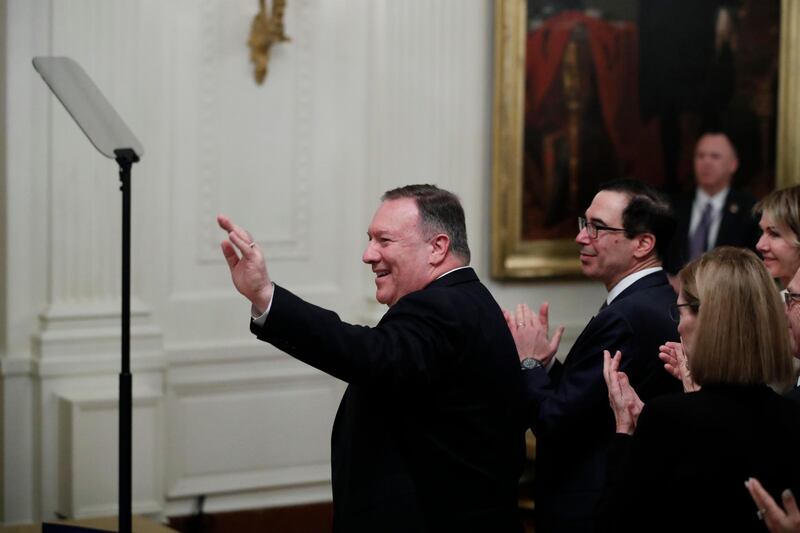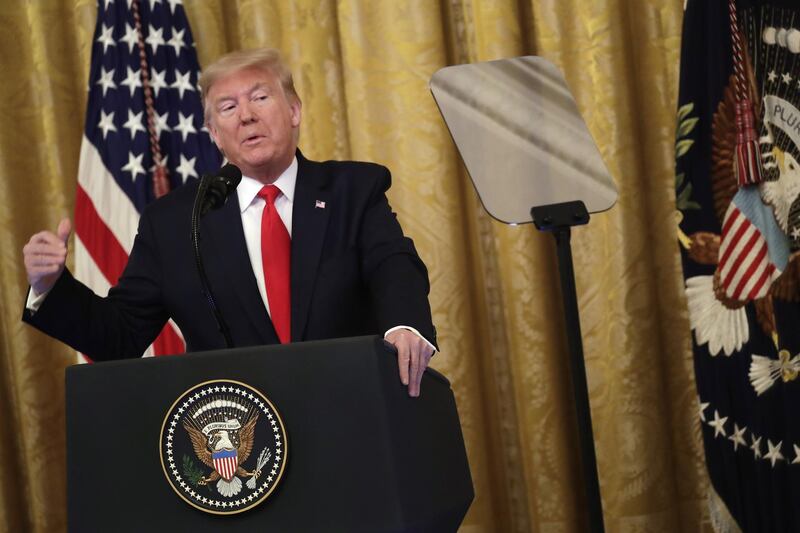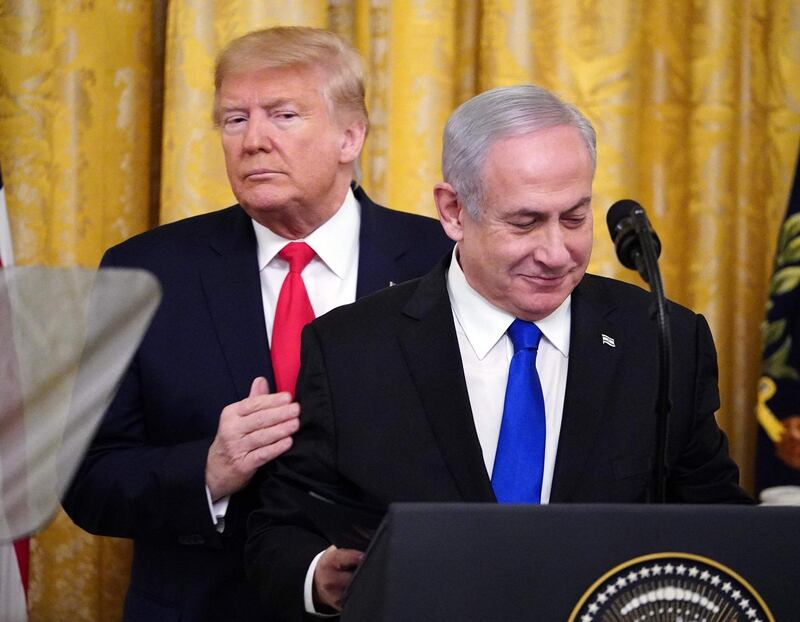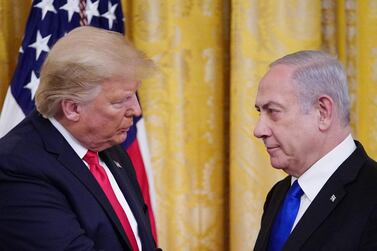Countries and international organisations have reaffirmed their support for a "two-state solution" to the Israeli-Palestinian conflict after US President Donald Trump unveiled his long-awaited Middle East peace plan on Tuesday.
The EU, France, Germany and the UN highlighted their ongoing commitment to the two-state solution, with the UK giving the warmest reaction as Downing Street said the plan "could prove a positive step forwards".
The EU’s foreign policy chief Josep Borrell said the bloc will "study and assess" Mr Trump's proposals on the basis of its commitment to a "negotiated and viable two-state solution that takes into account the legitimate aspirations of both the Palestinians and the Israelis".
Germany, the EU's most powerful player, echoed Mr Borrell's point by calling for a balanced approach.
"Only a negotiated two-state solution, acceptable to both sides, can lead to a lasting peace between Israelis and Palestinians," German Foreign Minister Heiko Maas said.
While France said it welcomed Mr Trump's efforts, a foreign ministry statement said it will "carefully study" the plan.
The statement also said that "a two-state solution, in conformity with international law and internationally-agreed parameters, is necessary for the establishment of a just and lasting peace in the Middle East".
The UN said it remains committed to a two-state solution based on the borders in place before the 1967 war, when Israel seized the West Bank and Gaza.
"The position of the United Nations on the two-state solution has been defined, throughout the years, by relevant Security Council and General Assembly resolutions by which the Secretariat is bound," Stephane Dujarric, a spokesman for Secretary General Antonio Guterres, said.
Russia said it would study the plan and called on Israelis and Palestinians to negotiate directly to find a "mutually acceptable compromise."
Introducing a note of doubt, Deputy Foreign Minister Mikhail Bogdanov said: "We do not know if the American proposal is mutually acceptable or not. We must wait for the reaction of the parties."
The two-state solution to the Palestinian-Israeli conflict envisages an independent state of Palestine alongside the state of Israel.
The US plan, which aims to solve one the world’s longest-running conflicts, proposes an independent Palestinian state and the recognition of Israeli sovereignty over West Bank settlements. It also gives Israel control over Jerusalem as its capital.
“The announcement of the deal indicates an infringement of the legitimate rights of Palestinians,” Arab League chief Ahmed Aboul Gheit said.
The 180-page plan was rejected by Palestinian officials before and after it was published.
“A just and sustainable peace cannot be achieved by ignoring the reality of the Israeli occupation of the Palestinian territories since 1967 or by working to legalise this occupation," Mr Aboul Gheit said.
Palestinian President Mahmoud Abbas called for unity between all Palestinians, and said “we will not kneel and we will not surrender”.
“Jerusalem is not for sale,” he said.
Mr Trump said Jerusalem would be Israel's "undivided capital" under his plan.
The plan aims to recognise all of Israel’s settlements in the occupied West Bank — considered illegal by much of the international community — a move that would allow Israel to annex all of the outposts, which are home to more than 400,000 settlers.
Mr Aboul Gheit asserted that the "main measures in judging any peace plan is the extent of its compatibility with international law and justice."
The league is expected to hold an urgent meeting on Saturday to discuss its response to the proposal.


